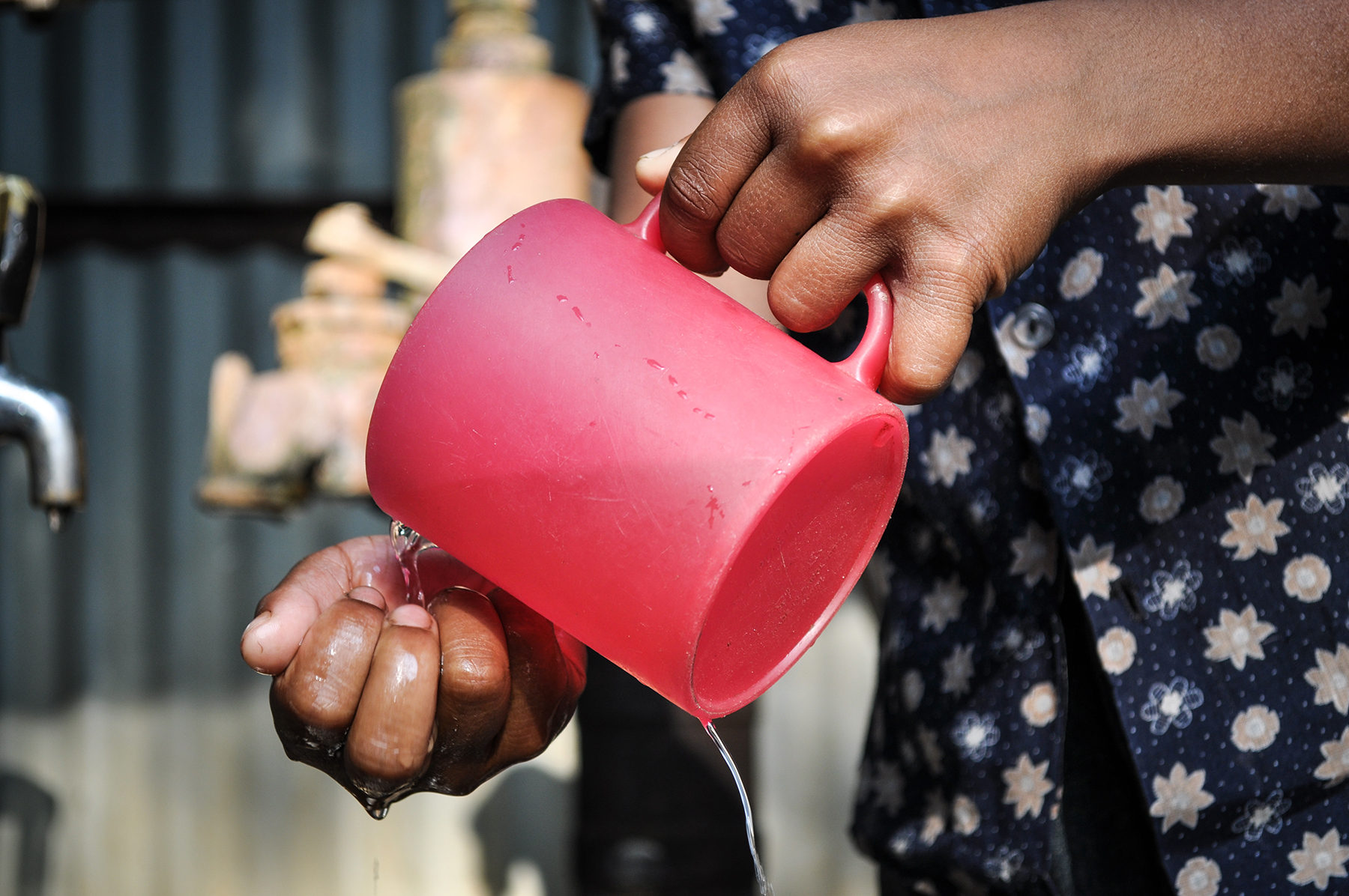
Clean Water in Bangladesh
A new beginning for children in Bangladesh
Access to clean water gives children and their families a new beginning. We want all children to thrive, their futures filled with hope and well-being.
In the developing world, there is a persistent need for better water, sanitation and hygiene. This is especially true in the southwest coast of Bangladesh, where families have continued to experience sea-level rise, leading to high levels of salt water, persistent flooding, and natural disasters. This has made the region a food deficit area where issues of poverty, food insecurity and malnutrition are exacerbated. Safe and hygienic sanitation, a basic human necessity, also remains a challenge.
Shortages of clean drinking water have also distressed the southwest coast. Half of households in the area spend over thirty minutes to collect water, with most of the burden placed on women. Some even take hour-long trips four times per day. This exhausting process leads many families to use unsafe water sources that are closer to home, leading to higher risks of disease and malnutrition.
Our vision: a new beginning for the vulnerable in Bangladesh. We commit to doing everything we can to make this happen. We look forward to a world where every child grows strong in communities with access to water, free of need and full of promise.
Working together
At World Vision, we believe that God can work through all people to achieve his purpose. We gladly work together with organisations that also value the well-being of children.
The USAID programme Nobo Jatra, which means New Beginning, addresses the needs of the vulnerable in the southwest coastal areas of Bangladesh. Our local World Vision field office in Bangladesh leads the programme, working closely with World Food Programme, Winrock International, and the Ministry of Disaster Management and Relief of the Government of Bangladesh, as well as three local partner organisations.
Together we can do more and be more than any of us could have imagined.
A holistic approach
We approach the needs of children and their families holistically. At World Vision, we pride ourselves in this powerful and unique approach that encompasses the varied needs of the vulnerable. Our goal with Nobo Jatra goes beyond water. We seek to improve gender equitable food security, nutrition and resilience in southwest Bangladesh.
With the Nobo Jatra programme, we work to improve knowledge and access to water, sanitation, and hygiene, but we also emphasise maternal and child health and nutrition, with a focus on children under five years of age, pregnant and lactating women and adolescent girls. We also increase agricultural activity and generate income, address chronic malnutrition and improve resilience to shocks and stresses. These interventions are underpinned and informed by gender equality and social accountability, which enable an environment for transformative change. The Nobo Jatra project makes continuous efforts to ensure women’s equitable participation, improve access to and control over resources and increase decision-making power.

Water sits at the heart of this
Access to clean water helps children have a new beginning full of hope. Like many programmes at World Vision, our work with water sits at the heart of Nobo Jatra, affecting many aspects of a child’s well-being.
In the southwest coast of Bangladesh, we have helped over thirty thousand people gain access to clean drinking water by installing new water points and rehabilitating old ones. Over twenty thousand people have gained access to sanitation services, including new and rehabilitated latrines. Together, these two interventions have already saved lives and improved health by decreasing incidences of diarrhoea among children under five. Diarrhoea is the second-leading cause of death globally in children under five, and accounts for roughly half of all malnutrition. Learn more about how World Vision works to improve Health & Nutrition.
Empowering women
In Bangladesh, women are the primary users of water facilities, and Nobo Jatra clearly recognizes their role by ensuring women’s active participation in leadership trainings, water service maintenance and water management committees. We ensure that women are consulted on the location, design, and maintenance of water and sanitation facilities and services.
We mobilise mothers and caregivers to achieve sustainable hygiene practices through large scale training sessions. We’ve had over two hundred thousand graduates and counting. We also promote the increased practice of gender equitable norms in the household, such as food distribution, work load, supporting environment, and decision making.
We help communities take ownership of their water and sanitation facilities by creating Water Management Committees. And we’re proud to say that we’ve empowered over five hundred women to be leaders in those committees.
Economic Development
We take a market development approach to help stimulate user demand and supply for improved sanitation products. We work with local governments, service providers, community-based organizations and local entrepreneurs to foster an environment that supports the use of new sanitation products and delivery methods. As social norms around sanitation and hygiene practices improve, the local economy will be ready to meet the higher demand for better products and services. This creates a sustainable solution even after we leave.
In addition to developing and rehabilitating water sources, Nobo Jatra helps vulnerable men and women increase their income and access to nutritious food through entrepreneurial literacy, agriculture and diversification of livelihoods. We emphasise approaches with potential for high involvement and low barriers to entry for women and youth.
See more of World Vision's work to empower community resilience.
But there’s more to be done
We hope to give access to clean water and sanitation to over a hundred thousand women and children in the area, giving each of them a new beginning.
No child should lack access to clean water. We believe this can be solved in our lifetime. Globally, we reach one new person with clean water every ten seconds. Our commitment is to ensure clean water and sanitation for everyone, everywhere we work, by 2030.
We want all children to thrive, to experience life in all its fullness.
